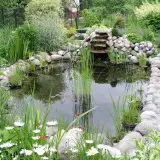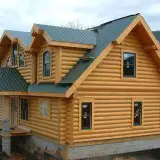Fruit Trees for Every Type of Weather. The Best Choices in Your Area
Before investing in an orchard, regardless of the size you’re going for, you should consider the way every fruit tree grows and produces in the weather conditions and the soil in your area. Here are the fruit trees for every type of weather, so you can choose smart.
Fruit trees for every type of weather. Temperature
In Romania, the best fruit trees for cold areas are the apple and plum trees. They bloom, germinate and form fruit at temperatures between 50 and 70 degrees.
On the other hand, the trees that need heat the most are: the almond, apricot, peach, quince, cherry, hazelnut, chestnut and walnut trees.
You can’t grow peach or apricot tree in a shaded and rainy area, because you could never get the best production out of them.
Fruit trees for every type of weather. Water
The fruit trees that best stand drought are the almond tree, the apricot tree grafted on almond tree, the cherry tree grafted on Turkish sour cherry tree. But the almond and apricot trees can’t stand the frost: their buds and even whole branch parts freeze.
The less drought resistant trees are the apple, plum and sour cherry trees.
You shouldn’t plant apple or pear tree where rainfall is under 500 ml/m2/year. In order to bear crops, these fruit trees need a rainfall amount of more than 600 ml/m2/year.
The walnut tree, which stands both temperature and water variations very well, needs plenty of light in return to produce well.
Soil
The best soils for an orchard are the chernozems, rich in humus, and the red forest soils. Avoid soils with a high content of clay or loam, that retain a lot of water, which leads to root rotting.
But the way the soil type influences fruit trees growth and production also depends on the weather in the area. In drier areas, it’s better to have a heavier soil, that retains the scarce water there is, while in more humid areas, lighter soils that are easier to drain are preferable.
Note that the peach, apricot, pear and cherry trees prefer lighter soils, while the plum, apple and sour cherry trees prefer heavier ones.
Credits: agrointel.ro
Photo credits: acasa.ro, covera.ro, pepinierasarusi.ro, paradisverde.ro















